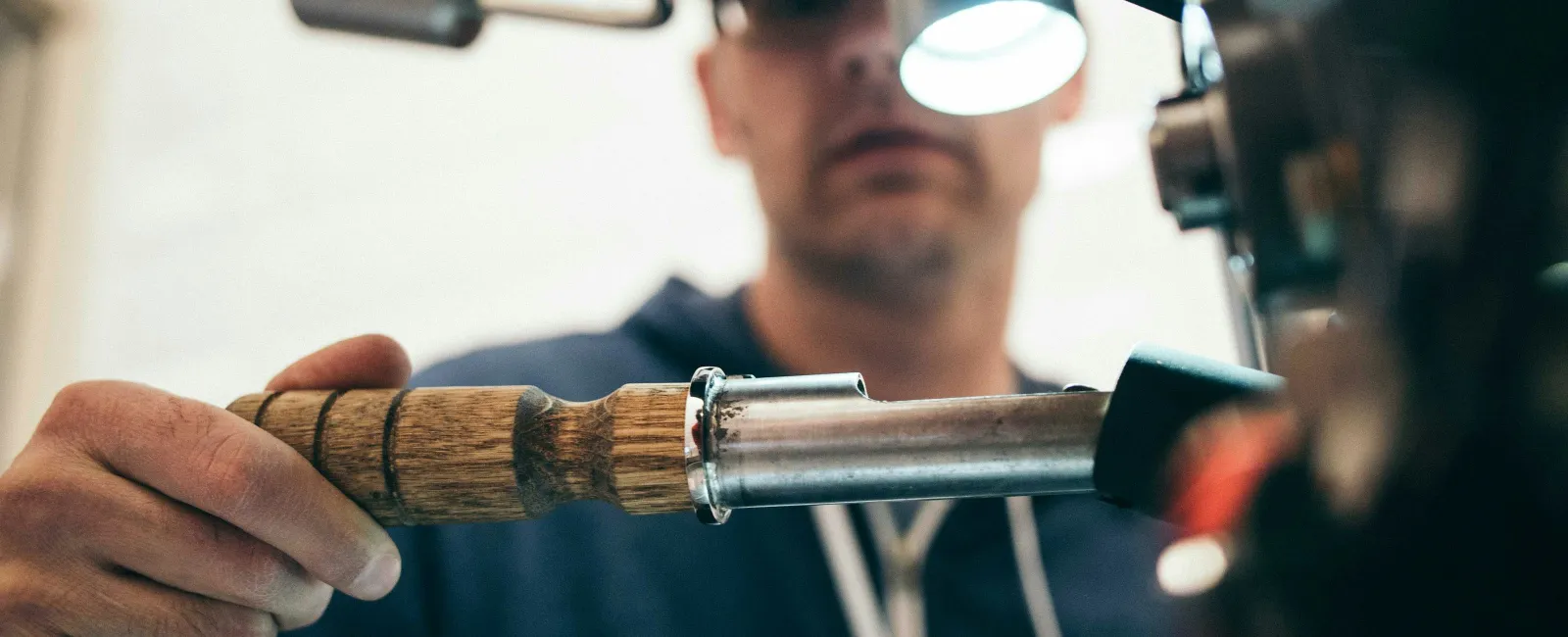October 24, 2025
It's a random Tuesday night, and you hear that all-too-familiar drip... drip... drip coming from your bathroom faucet. Or maybe your kitchen sink is draining slower than usual. Sound familiar?
If you're a homeowner in Atlanta, you're not alone. Plumbing problems always seem to pop up at the worst possible time. The good news? Most common plumbing issues are preventable, and knowing what to look for can save you time, money, and a whole lot of headaches.
At Dalmatian Plumbing, we've seen it all across Metro Atlanta. With over 75 years of combined experience serving the Atlanta area, we're here to walk you through the 10 most common plumbing problems you're likely to encounter, and how to tackle them.
1. Clogged Drains: The Number One Culprit
A clogged drain is, hands down, the most common plumbing issue we see in Atlanta homes. Whether it's your kitchen sink backing up after dinner or your shower drain turning into a bathtub mid-rinse, drain clogs are frustrating.
What causes it? Hair, soap scum, food particles, and grease are the usual suspects. In kitchen sinks, people often make the mistake of treating their drain like a garbage disposal (pro tip: even if you have a disposal, not everything belongs down there).
The fix: For minor clogs, a plunger or a mixture of baking soda and vinegar can work wonders. But for stubborn, backed-up drains that won't budge, it's time to call in the pros. We use advanced drain cleaning equipment that clears clogs efficiently without damaging your pipes.
When to call a plumber: If you've got multiple drains clogging at once, that could signal a main line clog, a bigger problem that needs professional attention right away.
2. Garbage Disposal Not Working
Your garbage disposal is supposed to make life easier, not harder. But when it stops working or starts making scary grinding noises, it quickly becomes a kitchen nightmare.
Common issues: jammed disposals (usually from something that shouldn't have gone down there), the reset button tripping, or complete motor failure.
The fix: First, try the reset button on the bottom of the unit. If that doesn't work and you can see something stuck in there, turn off the power at the breaker and try to dislodge it with tongs, never your fingers! When the unit won't clear or the motor is shot, we can repair or replace it quickly.
Prevention tip: Avoid putting fibrous foods (celery, corn husks), grease, bones, or pasta down your disposal. These are disposal killers.
3. Water Heater Problems
Nothing ruins a morning quite like a cold shower. Water heater issues are among the most disruptive plumbing problems Atlanta homeowners face, especially during those chilly winter months.
Signs of trouble: Leaking water heater, rumbling or popping sounds, running out of hot water faster than usual, or rusty water coming from your taps.
The fix: Some issues, like adjusting the temperature or flushing sediment buildup, are DIY-friendly. But for major water heater issues, such as no heating, leaks, or strange noises, you need a professional to diagnose the problem. We work with both traditional and tankless water heaters and can quickly determine whether you need a repair or replacement.
Atlanta-specific note: Hard water is common in parts of Metro Atlanta, which accelerates sediment buildup in water heaters. Annual flushing can significantly extend your unit's life.
4. Running Toilets: The Silent Water Bill Killer
If your toilet keeps running long after you flush, you're literally flushing money down the drain. A running toilet can waste up to 200 gallons of water per day, which will definitely show up on your Atlanta Water Department bill.
What's happening? Usually, it's a worn-out flapper valve, a faulty fill valve, or an improperly adjusted float, the moving parts inside your tank that control water flow.
The fix: Replacing a flapper is relatively inexpensive and straightforward. You can find replacement parts at any hardware store. However, if you can't pinpoint the issue or you've replaced parts and it's still running, give us a call.
Pro tip: Add a few drops of food coloring to your tank. If color appears in the bowl without flushing, you've got a leak that needs fixing.
5. Frozen and Burst Pipes
While Atlanta doesn't face the harsh winters of northern states, we do get cold snaps that catch homeowners off guard. When temperatures drop below freezing, exposed pipes can freeze and burst, causing severe water damage.
High-risk areas: Outdoor faucets, pipes in unheated crawl spaces, and lines running along exterior walls are most vulnerable.
Prevention is key: Before winter hits, disconnect garden hoses, drain outdoor faucets, and insulate exposed pipes. During freezing weather, let faucets drip slightly to keep water moving.
The fix: If you discover a frozen pipe, shut off your main water valve and call a plumber immediately. If you hear water running but none is coming out of your faucets, that's often a sign of a burst pipe behind a wall. This is an emergency that requires professional leak detection and repair to prevent extensive damage.
6. Low Water Pressure
If you've noticed your shower has turned into a sad trickle, or it takes forever to fill a pot of water, you're dealing with low water pressure, one of the more frustrating plumbing issues because it affects your daily routine.
Common causes: Mineral buildup in pipes (especially in older Atlanta homes), a partially closed shut-off valve, pipe corrosion, or even a hidden leak somewhere in your system.
The fix: Check your shut-off valves first to make sure they're fully open. Clean your faucet aerators and showerheads, as mineral deposits often accumulate there. If you're experiencing low pressure throughout your entire house, it suggests a larger issue, such as pipe problems or a leak that requires professional diagnosis.
Atlanta consideration: Many older neighborhoods have galvanized steel pipes that corrode over time, causing pressure issues. If your home was built before 1960, this could be your culprit.
7. Dripping Faucets: Small Drip, Big Impact
That persistent drip, drip, drip isn't just annoying when you're trying to sleep. A dripping faucet can waste more than 3,000 gallons per year, enough water for 180 showers!
What causes it? Usually, it's a worn-out washer, O-ring, or cartridge inside the faucet. Over time, these parts deteriorate from regular use.
The fix: Replacing faucet parts is a common DIY project if you're handy with tools. However, if you've already replaced parts or you have a more complex faucet design, we can diagnose and fix the issue quickly. We also handle faucet leaks under the sink, which often indicate a problem with supply lines or connections.
Don't ignore it: Beyond wasted water, that constant dripping can lead to staining and even damage to your sink or tub over time.
8. Sewage Backup and Sewer Smell
Let's talk about the problem nobody wants to deal with but everyone needs to know about: sewage backup and that unmistakable sewer smell in your home.
Warning signs: Gurgling sounds from drains, multiple clogged drains, water backing up in basement drains, or that awful smell coming from your drains or yard.
What's happening? This could be a mainline clog from tree roots (a big issue in Atlanta's tree-lined neighborhoods), flushed items that shouldn't go down the toilet, or even municipal sewer line problems.
The fix: This is not a DIY situation. Sewage backup is a health hazard and requires professional equipment to diagnose and fix. We use video camera inspection to locate the problem and hydro-jetting or other methods to clear main line blockages.
Prevention: Be mindful of what goes down your drains. Tree roots are attracted to water, so if you have large trees near your sewer line, consider periodic inspections.
9. Leaking Pipes: Hidden Damage Waiting to Happen
A pipe leak might seem minor at first, but even small leaks can cause major problems over time. Water damage, mold growth, and structural issues can result from unaddressed leaks.
Signs to watch for: Water stains on ceilings or walls, unexpectedly high water bills, musty odors, or the sound of running water when all fixtures are off. You might also notice wet spots in your yard or cracks in your foundation.
Common causes: Pipe corrosion (especially in older homes), high water pressure, temperature changes causing expansion and contraction, or poor installation.
The fix: Small leaks in accessible pipes can sometimes be temporarily patched, but professional pipe repair or replacement is usually necessary. We offer comprehensive leak detection services that can find hidden leaks behind walls or underground without unnecessary demolition.
Atlanta homes: If you live in one of Atlanta's beautiful historic neighborhoods, be aware that older plumbing materials, such as galvanized steel, are more prone to corrosion and leaks.
10. Toilet Clogs and Overflows
Last but definitely not least, let's talk about the dreaded toilet clog. We've all been there: you flush, and instead of going down, the water starts rising. Panic sets in.
What causes it? Too much toilet paper, flushing items that aren't flushable (yes, even some "flushable" wipes aren't actually flushable), or foreign objects accidentally dropped in (parents of toddlers, we see you).
The fix: A good plunger should be your first line of defense. Make sure you're using a toilet plunger (the one with a flange), not a sink plunger. For stubborn clogs, an auger might do the trick. But if you're experiencing frequent clogs or toilet overflows, there could be a deeper issue in your drain line.
When to call for help: If you're constantly dealing with clogs, if the toilet overflows, or if you notice sewage coming up through other drains when you flush, call a plumber immediately.
When Should You Call a Professional?
Look, we love a good DIY success story as much as anyone. But there's a fine line between a simple fix and turning a minor problem into an expensive disaster. Here's when you should pick up the phone:
- Multiple drains are backing up (suggests a main line issue)
- You smell sewage in your home
- You see signs of water damage or mold
- Your water bill has spiked unexpectedly
- You hear water running when all fixtures are off
- You're dealing with burst pipes or sewage backup
- The problem keeps coming back after you've "fixed" it
- You're not comfortable with the repair
Keeping Your Atlanta Home's Plumbing in Top Shape
Living in Atlanta comes with its unique plumbing challenges. Our clay soil can shift, potentially affecting underground pipes. Hard water accelerates wear on fixtures and water heaters. Older homes in neighborhoods throughout Fulton, DeKalb, and Cobb Counties often have plumbing that needs updates.
The key to avoiding major plumbing issues is prevention and quick action when problems arise. Regular maintenance, being mindful of what goes down your drains, and addressing small issues before they become big ones will save you money and stress in the long run.
At Dalmatian Plumbing, we combine reliability, speed, and precision to tackle any plumbing challenge. Just like the distinctive and dependable Dalmatian, we're always alert, friendly, and ready to serve. As a family-owned company serving Metro Atlanta for 25+ years, we've built our reputation on fast, reliable service and solutions that last.
Don't Let Plumbing Problems Ruin Your Day
Whether you're dealing with a dripping faucet that's driving you crazy, a clogged drain that won't budge, or a more serious issue like sewage backup or burst pipes, we're here to help. Our licensed, insured team is available 24/7 for plumbing emergencies.
Remember, plumbing problems rarely fix themselves. In fact, they usually get worse (and more expensive) over time. If you're experiencing any of these common plumbing issues in your Atlanta home, don't wait. Give Dalmatian Plumbing a call or schedule service online. We'll have your plumbing running smoothly again in no time.





